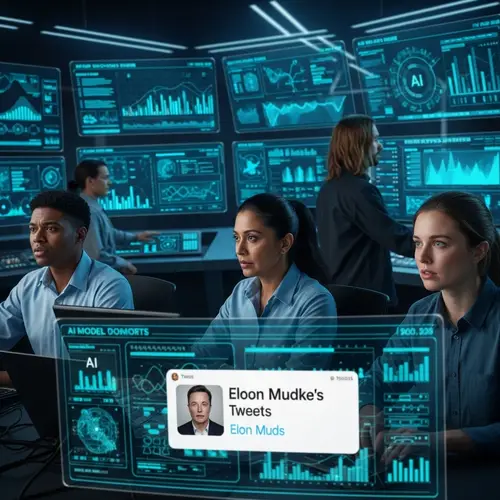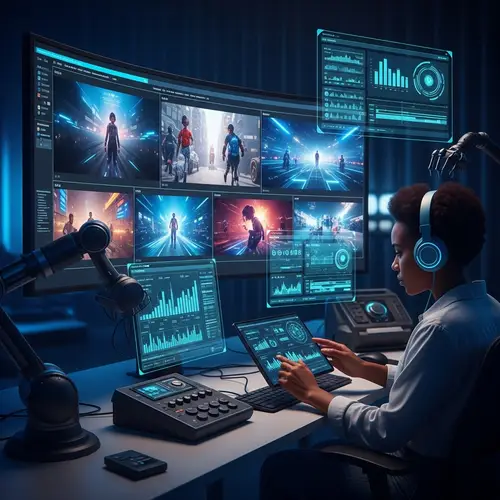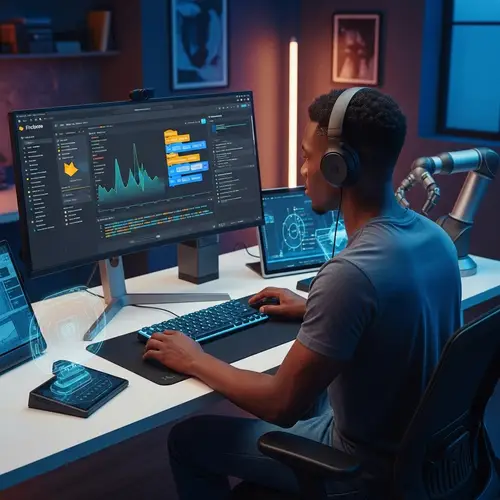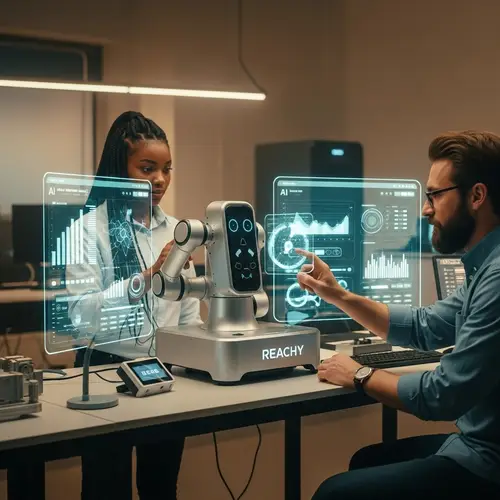How ChatGPT is Helping Diagnose Rare Medical Conditions Missed by Doctors
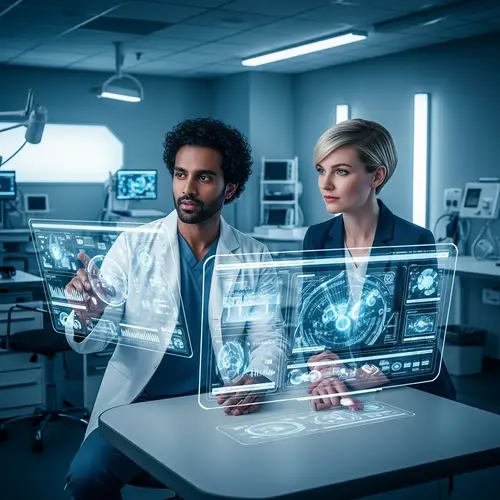
Picture this: You’ve been bouncing from doctor to doctor, collecting diagnoses that feel more like guesses. Blood tests are normal. Scans are clean. Yet, you’re still unwell. Then, you feed your symptoms into ChatGPT—and within minutes, you’ve got a possible condition to investigate further. That’s eye-opening, to say the least.
AI Medical Diagnosis and the Challenge of Rare Conditions
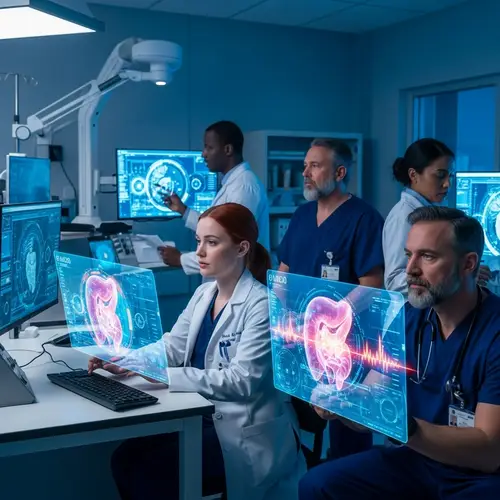
Rare diseases affect over 300 million people worldwide. Yet, rare can feel like invisible.
On average, patients with rare conditions wait 5–7 years before receiving an accurate diagnosis. That’s not just frustrating—it’s exhausting. Many spend this time experimenting with treatments, chasing referrals, and even questioning their reality.
Meanwhile, even experienced physicians can miss these illnesses. Why? Because no one can memorize all 10,000+ identified rare diseases—not even the experts.
Enter ChatGPT: A New Tool for AI Medical Diagnosis
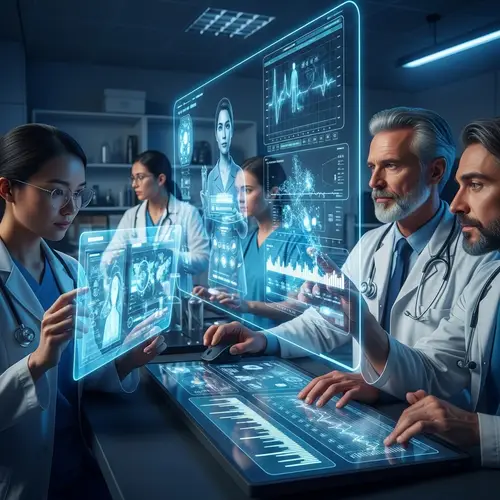
ChatGPT isn’t a doctor. But it can be an unexpected ally in the diagnostic maze.
By processing vast medical literature and conversational inputs, ChatGPT helps patients and professionals narrow down potential conditions. Think of it as a well-read assistant with a photographic memory and endless curiosity. A recent trend? People are turning to ChatGPT to help identify conditions that human doctors have missed for years.
In real-world use, the results have been both surprising and impressive.
AI Medical Diagnosis Success Stories with ChatGPT
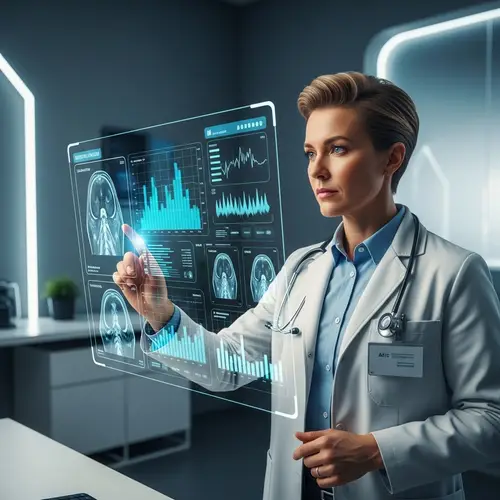
Story #1: A Mom, a Sick Son, and a Breakthrough
One mother in the U.S. spent years seeking answers for her son’s chronic pain and developmental delays. After feeding his symptoms into ChatGPT, the AI suggested tethered cord syndrome—a condition she’d never heard of. A spine specialist confirmed the diagnosis.
What precisely sets ChatGPT apart from the swarm? Its ability to synthesize rare combinations of symptoms and suggest plausible conditions fast. Even obscure ones.
Story #2: Neuralgia from Nowhere
A man in Switzerland suffered unexplained facial pain for months. Physicians suspected dental issues. ChatGPT? It suggested trigeminal neuralgia, often called the “suicide disease” due to its severity. A neurologist confirmed it within weeks. Speed saves sanity.
Story #3: Chronic Fatigue Finally Defined
A woman grappling with extreme fatigue fed her entire health history into ChatGPT. It flagged postural orthostatic tachycardia syndrome (POTS). After years of being told it was all in her head, she had a diagnosis.
These aren’t isolated incidents. They reflect a growing pattern where AI tools supporting healthcare diagnosis are stepping up where traditional approaches fall short.
How ChatGPT Supports AI Medical Diagnosis of Conditions
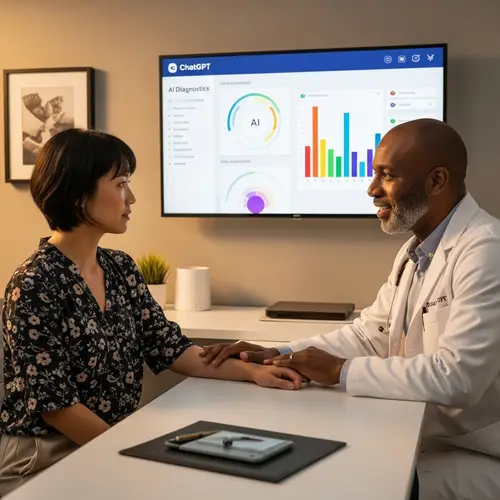
So, how does it really work?
Unlike symptom checkers that spit out random illnesses, ChatGPT engages in dialogue. It asks questions, considers context, and adjusts its analysis. It cross-references scholarly databases, case studies, and global disease profiles—not just what’s common in one region.
In other words, it thinks globally and connects unlikely dots.
ChatGPT in Patient Medical Research
Many rare disease patients become self-made experts. They delve into scientific articles, join niche forums, and even participate in clinical trials. But digging through massive medical databases alone can be overwhelming.
Enter ChatGPT again. Patients use it to summarize jargon-filled studies, compare treatment options, and generate questions for specialists. It amplifies their advocacy and helps them prepare smarter for medical appointments. This isn’t just empowering—it’s effective.
The Role of Medical Professionals
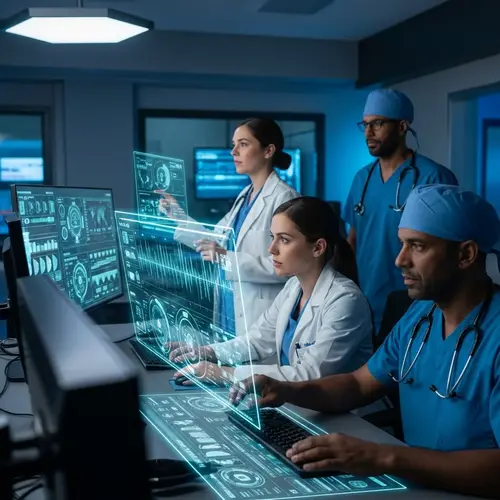
Let’s be clear: ChatGPT won’t replace your doctor. But it can enhance the conversation.
Doctors who embrace AI as an investigative partner—not a competitor—stand to benefit immensely. They’re using ChatGPT to brainstorm rare diagnoses, explain conditions in plain English to patients, and get up to speed on newly published findings.
Like any instrument, its value depends on who’s using it and how. And when used wisely, it can transform long diagnostic odysseys into focused, informed plans.
Common Questions About ChatGPT and Rare Disease Diagnosis
No. ChatGPT helps generate possibilities based on your inputs, but only licensed professionals can diagnose you officially. Consider AI a helpful guide—not a final word.
Never share personally identifiable or sensitive data with any AI tool. While platforms improve security, AI interactions may not yet meet strict medical confidentiality standards.
You can use ChatGPT to organize your symptoms and questions. Sharing these insights might help your doctor consider diagnoses they hadn’t previously explored, especially for rare conditions.
It depends on the model. Some versions access limited datasets up to a certain date. Others are integrated with current databases. Always double-check anything critical with a medical professional.
Some do, particularly for brainstorming or simplifying explanations. But due to regulatory barriers, ChatGPT isn’t yet embedded in certified clinical tools. Still, it’s gaining traction as a light but mighty auxiliary instrument.
Final Thoughts: The Human-AI Hybrid Path Forward
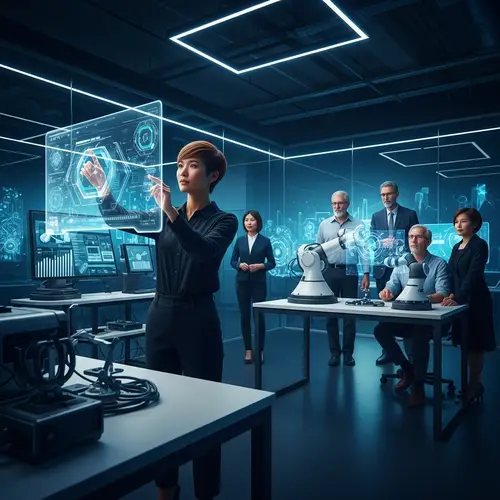
Could we be witnessing the rise of a diagnosis revolution? Maybe. More likely, it’s a quiet transformation powered by curiosity, collaboration, and digital intelligence.
AI for rare disease diagnosis is proving effective—not because it replaces doctors, but because it complements them in novel ways. The real power lies in synergy: doctors bring wisdom, patients bring lived experience, and ChatGPT brings breadth and speed.
So, next time a condition stumps your entire care team, maybe it’s time to start a new conversation—with a chatbot. Stranger things have happened.
Curious to learn more about how AI is reshaping modern healthcare? Dive into our latest tech-health insights and stay ahead of the curve.

